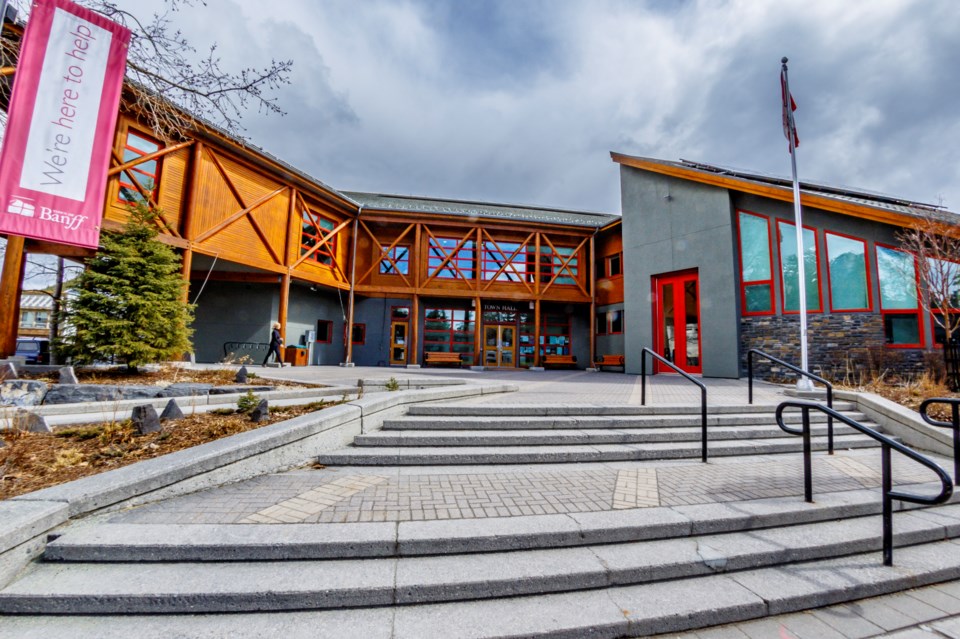BANFF – The number of bed and breakfast homes in Banff’s residential neighbourhoods may be capped at 42 – more or less the number currently in operation.
An additional 15 B&B home permits, however, would be reserved for homes that are legally designated municipal historic resources in a bid to save Banff’s dwindling heritage properties, bringing the total B&B home quota to 57.
“This is really probably one of the biggest shifts,” said Dave Michaels, the manager of development services for the Town of Banff.
“The direction (from council) was to come up with a new number based on sound planning considerations that was actually less than the existing quota.”
The Town of Banff is drafting amendments to the land use bylaw on B&Bs following recommendations from council, a B&B working group, Municipal Planning Commission and the Banff Heritage Corporation over the past few years.
Currently, the overall quota for B&Bs in Banff is 65, which includes eight B&B inns.
B&B inns, which are essentially boutique hotels in residential neighbourhoods and grandfathered at incorporation, are not part of the new cap of 57. If an inn closes, another one is not permitted to open.
There are presently 41 B&B homes in operation. One is a legally designated municipal historic resource – the 1913 Abegweit property at 136 Bow Ave on the grounds of the Whyte Museum of the Canadian Rockies, also known as the Crosby Residence.
“If the town-wide allocation is adopted as proposed, there would be two allocations available for any property that meets all other bylaw requirements, and 14 allocations available for Municipal Historic Resources,” said Michaels.
In addition, the Town of Banff is looking to get rid of the quota per district and reintroduce a separation distance between B&B homes.
Under the proposal, B&B homes could not be located adjacent to each other or within three adjacent parcels on the same street. This would not apply to existing B&B homes.
When looking at options for changes to allocation quotas per district, Michaels said administration considered an even allocation per district based on a percentage of single detached housing and the number of dwellings within each district.
However, he said this resulted in a number of currently full districts having the quota in those districts reduced beyond what is currently approved.
“The proposed approach to remove allocation by district allows for more flexibility within the districts that currently allow bed and breakfast homes,” he said.
“The introduction of a spatial separation ensures that the potential for a high concentration of accessory guest accommodation in one area is eliminated.”
The governance and finance committee directed administration to draft an amending bylaw that included the new quota and introduction of a separation distance.
As part of that, municipal historic resources would be exempted from the separation requirements. In addition, there would also be an allowance for a municipal heritage resource B&B to have any eligible resident as a live-in manager.
“This would allow flexibility for properties owned by non-profit organizations or foundations while ensuring the properties remain primarily residential in nature,” said Michaels.
Mayor Corrie DiManno said she loves the concept of what administration is trying to do in terms of saving heritage properties.
She pointed to the successful B&B model of Abegweit, which is legally protected as a municipal historic resource.
“It seems very sustainable; the money from the operation helps restore and keep that building going and I think that’s a really successful model,” said the mayor.
There are 110 residential properties on Banff’s heritage inventory that are not legally protected.
The heritage master plan, which will look at incentives for retaining heritage properties, is also underway.
Darren Enns, the director of planning and development for the Town of Banff, said the loss of heritage is a pressing issue.
“We are seeing heritage properties being demolished and the feedback from heritage property owners is there’s no financial incentive for retaining these properties,” he said.
“Bed and breakfasts have been called out as a specific tool… this is a pressing issue and we wanted to bring it forward quickly.”
Stavros Karlos, a former director of the Banff Heritage Corporation, spoke in favour of the heritage allowances in the proposed changes to the B&B regulations, noting many of the homes have “a lot of character and life.”
“Banffites love old homes. Let’s stop demolishing them. This law may fix that,” he said during the June 27 governance and finance committee meeting.
“Many of the homes which have been lost over the past decade are homes that I would walk by every day on my way to school, on my way to work, wandering throughout town,” he added.
“I found it amazing that many of these homes found their way to our town all the way from Bankhead. They contain within their walls the stories of our town.”
However, Karlos said he understands the desire to convert heritage into more valuable housing for residents, but he said this is a failure of policy, not a failure of developers.
“I believe that the best solutions are when smart policies create land use frameworks which provide benefits for developers, and benefits for the greater community – both can win,” he said.
“I believe that what’s presented can immediately create additional market value where none currently exists for the restoration of our rapidly diminishing stock of heritage homes, at no expense to the taxpayers of Banff.”
Following concerns about the process of the proposed changes to the regulations from some B&B owners, information engagement sessions will be held with members of the public and stakeholders, including all current B&B owners and operators, no later than October.




